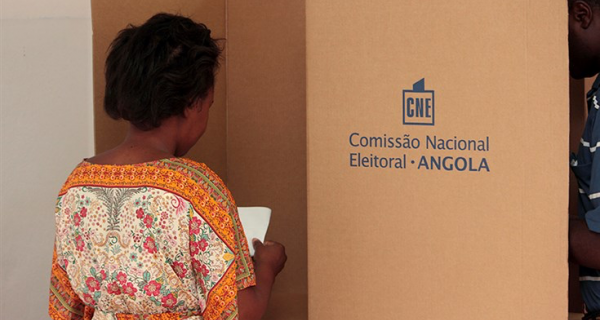Speaking on the sidelines of an international seminar on the subject, taking place in Luanda, Maria do Rosário Pereira Gonçalves, president of the National Elections Commission of Cape Verde, addressed the experience of voting abroad, underlining that the country, with a large diaspora, has held elections abroad regularly since 1995, and currently holds polls in 22 countries on three continents.
"We will have the opportunity to share with Angola and other countries our experience in this matter in terms of legislation, logistics and operationalization of the vote, as well as the difficulties and constraints that we have already seen", she told journalists.
"For those who are going to start [Angolans in the diaspora will be able to vote this year for the first time] it may be important to work on these issues that we have listed as weaknesses in our electoral process in the diaspora", she considered.
Among the difficulties that Angola may face, Maria do Rosário Gonçalves indicated that the extension of the territory implies a complex electoral logistics, the same happening due to the dimension of the diaspora.
"We think that there may be some constraints in terms of logistics that can be overcome with good coordination with the Ministries of Foreign Affairs in the selected countries", he said, stressing the need for good coordination between the National Electoral Commission and its representatives in the foreigner "so that the process can flow".
João Damião, from the National Electoral Commission (CNE) of Angola, who took part in a panel on early voting, said that this modality is enshrined in the law and requires extra care in logistics.
"The CNE is obliged to take early voting votes that are in its custody for a period of 10 to 15 days," he said, adding that those votes would be counted at the same time as the national vote (24 August).
"In other words, the members of the polling station recruited by the CNE who followed the early voting will be the same ones who, on the general day of voting, will go to the municipal electoral commissions to open the polls and proceed with the count", stressed the same official.
For João Tiago Machado, spokesman for the National Elections Commission of Portugal, early voting and voting abroad is an evolving process that is “constantly being improved” and has more and more adhesion “which shows that the voter likes it”. .
The same official spoke about the importance of the network of electoral bodies in Portuguese-speaking countries, in the sense that countries learn from each other and avoid repeating the same mistakes.
As for the challenges of voting abroad, he considered that the biggest will be to assure voters that the vote they cast "is not the target of pressure."
This makes voting "much safer" through the consular network, to the detriment of voting by correspondence, he defended.
"In our case, I cannot understand how in cities where there is a consulate there are no more registrations for in-person voting at the consulate. We have more than 35,000 people in Madrid, we have a consulate with a metro at the door and we have 50 registered for the face-to-face voting. Afterwards, this creates problems, I think the electorate should be more careful in resorting to face-to-face voting abroad when possible", stressed the official.
As for the way of counting and handling the votes that will be forwarded to the polling center at Angola level, he suggested that the local polling stations should do all the work.
"When possible, it should be the voting table that does all the work: opens the ballot box, counts all the votes, takes the minutes, seals and closes the process," transmitting the results directly, the spokesman said.







